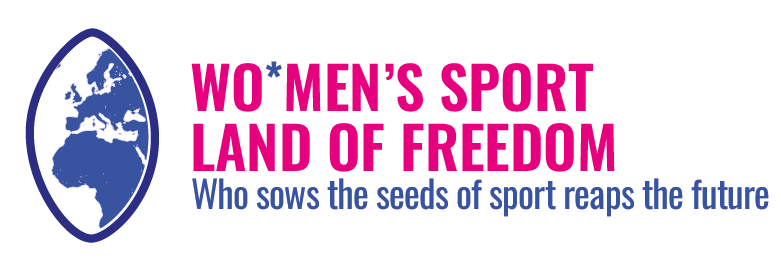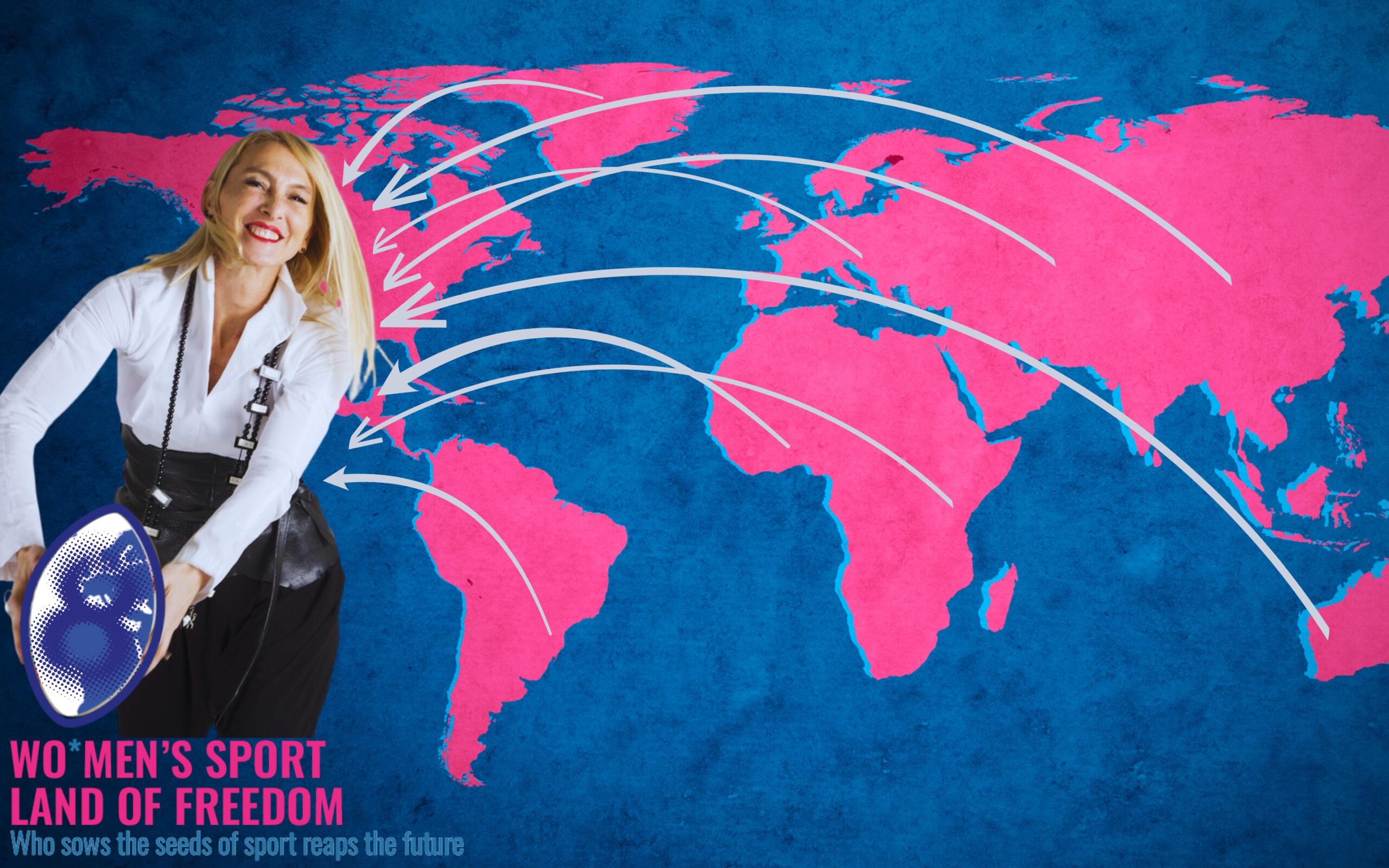
ENGLAND: If you don’t know what the obstacles are, if you don’t know the limits, sometimes you can achieve much more.
“There are always constraints — especially in team settings — but choosing to be part of a team is already a form of freedom”
Deborah Griffin
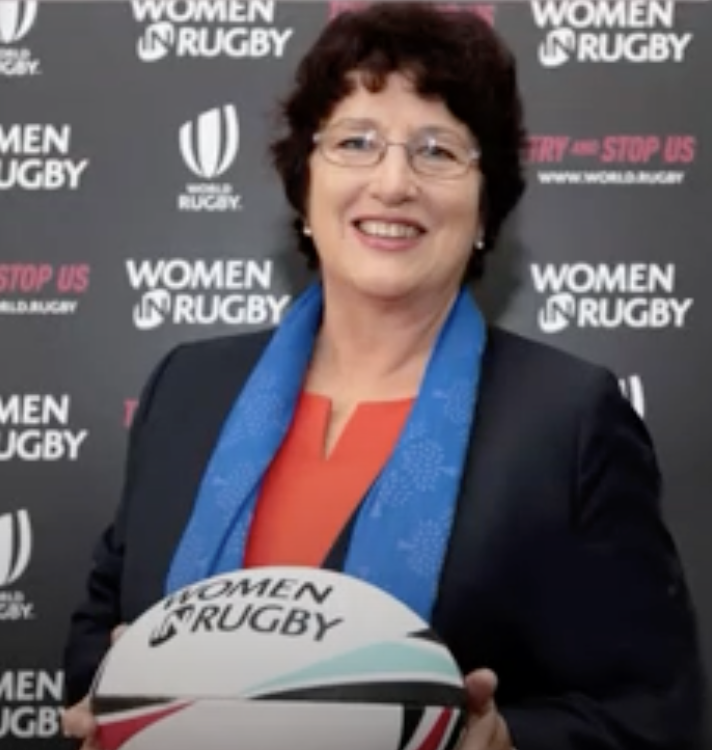
Ali Donnelly
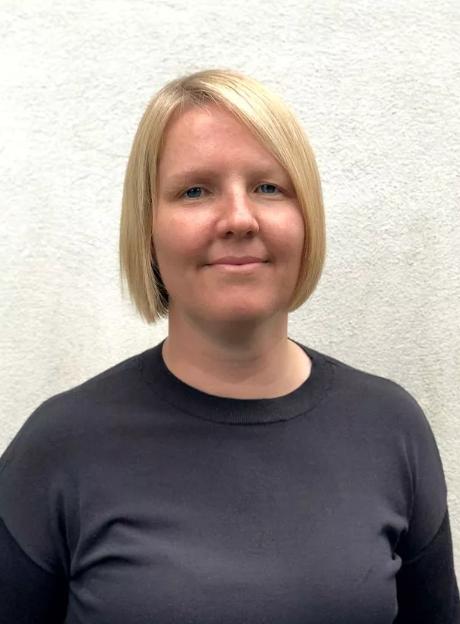
Nicky Ponsford
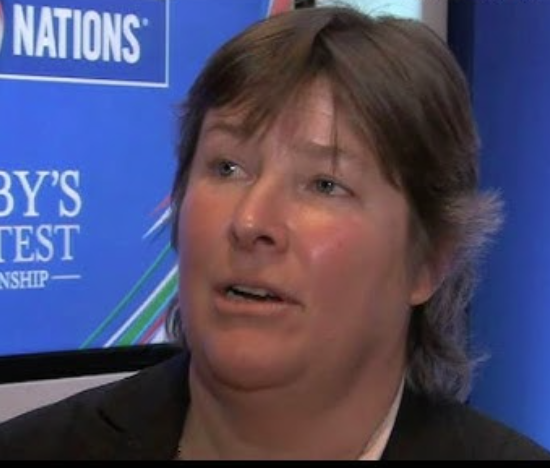
Deborah Griffin
RFU England President
Ali Donnelly
Executive Director, Corporate Affairs, England Rugby
Nicky Ponsford
World Rugby Director of High Performance
- The history of the women’s movement in England
- Testimonials
- Reading Time: 8 minutes
ENGLAND - Find out more
(Sources: Office for National Statistics; data.unwomen.org; data.ipu.org; World Bank Gender Data; World Bank Adolescent Fertility Rate)
HISTORY OF THE COUNTRY (Ali Donnelly)
1. When did the women’s rugby movement start in your country?
The first game in England played by women as a sport (and not a charity event) was probably in March 1978 between University College London students and Kings College London students. From there UCL students encouraged other Universities to play them and in 1983 members from 17 teams formed the Women’s Rugby Football Union. This had teams from both England and Wales and all but one, Magor Maidens RFC, were University sides.
After the formation of the Womens Rugby Football Union (WRFU) in 1983, regional teams and committees (1988) were introduced, League fixtures and regulations were formalised and Insurance arranged. The first International was played, Great Britain v France, in Richmond London on 19 April 1986. Also in 1986, Wales played England at Pontypool Park and thereafter annually. From 1987 a National Cup competition and a National Sevens Festival were held. In 1988, a GB side played in the European Cup at Bourg en Bresse, France. In April 1991 the WRFU organised and hosted the first Womens Rugby World Cup with 12 countries participating in Cardiff and surrounding clubs. In April 1994, the WRFU devolved with Wales and Scotland forming their own Unions and England being governed as the RFUW. Later that year the RFU formally recognised the womens game by granting the RFUW Associate membership. However it was not until 2010 that the RFUW had a representative on the RFU Council or until 2012 that the RFUW was merged into the RFU.
In 2010, the RFUW/RFU hosted the Womens Rugby World Cup. Since 2012, significant investment has been made in growing the game through our schools, Colleges, Universities and clubs. The RFU has a women and girls strategy “Every Rose” and the elite game has been professionalised with full-time contracts for England playing squad introduced in 2016. The Womens Rugby World Cup 2025 will be held across 8 venues and with 16 countriles in England. There are 39 English club members/ 9 Welsh club members / 36 English Univesity members / 4 Scottish University members / 5 Welsh University members – Total 93 Members. By 1995, the RFUW had 190 registered clubs (some with more than 1 team participating)
2. Do you think playing rugby has a social impact for a woman in your country?
Yes, rugby absolutely has social impact for female players in England — often in powerful and transformative ways. Though England is very much a ‘rugby’ country with a large number of fans and players and lots of media interest, arguably the sport is often still considered more suitable for men, so when women participate and excel in it, they challenge stereotypes about what women “should” do, helping to reshape perceptions of gender roles and capabilities.
We also know that female rugby players are visible role models for younger girls, showing them that strength and competitiveness are not just accepted but celebrated traits in women.
Finally, women’s players, like many female athletes are increasingly using their platforms to speak out on key societal issues and they can have a hugely positive impact. Lots of the Red Roses (England women’s players) are advocates for charities, good causes and societal issues and they use their voices powerfully.
3. In your opinion, what can rugby give to women in your country?
Certainly, your contribution will be acknowledged with a thank-you note. Rugby is an incredible sport for women offering a combination of physical, mental, and social benefits that go far beyond the sport itself. We know that the sport is a physical one which encourages women to be strong and enables women of all shapes and sizes to play at every level which is such an important aspect which not many other sports offer and that is particularly important for young girls who are often turned off sport early. The sport also nurtures a strong sense of community and belonging, where women often find a hugely supportive environment that values inclusion.
JOURNEYS THROUGH RUGBY (Deborah Griffin and Nicky Ponsford)
The interview responses are taken from the following videos:
DEBORAH GRIFFIN – https://youtu.be/efmY_MgyjTU?si=E2o-v5JflTI2RDxK
NICKY PONSFORD – https://youtu.be/kzdPnmfURWo?si=M2FLM35wXAslqyCy
1. When did you start playing rugby and how did you discover it?
Deborah Griffin: We’re talking about 40 years ago, more than 40 years ago. When we came off the rugby field, I simply thought it was the most fun I had ever had. I absolutely loved it. I had always played sports—swimming, running—but I had never taken part in a team sport. I was in love with the camaraderie, the physical side, and also the intellectual part of rugby.
2. What has rugby taught you that has had an impact on your daily life? Can you give an example of when a rugby mindset was useful to you?
Deborah Griffith: If you “don’t know” what the obstacles are, if you “don’t know” the limits, sometimes you can achieve much more, because you’re not discouraged by those barriers. You don’t stop in front of what might hold others back.
Nicky Ponsford: Rugby has had a huge impact on my life. It gave me a career I could never have predicted. It took me around the world. But above all, it gave me a passion for something meaningful and a vast network of people I would never have met otherwise. Rugby teaches you core values—discipline, teamwork, respect. (…) Add fun to that, and you get a real sense of value and purpose. Rugby teaches transferable skills. As an employer, if you hire a rugby player, you’re getting someone who is focused, dedicated, with leadership, teamwork, and the ability to prioritize and achieve goals. As a coach, you train people to make decisions. (…) You give them the tools and the framework so they can make decisions on the field. (…) Responsibility is freedom. That mindset—attention to detail and focus—is part of being a high-level rugby player. The way I approach education and professionalism is shaped by a rugby mindset: precision, responsibility, autonomy.
3. Can you give me three words that connect rugby with freedom?
Deborah Griffin: The key words that connect rugby with freedom are friendship, camaraderie, and freedom (of thought and expression).
Nicky Ponsford: Choice: Freedom means having the ability to choose.
Independence: Freedom is independence-making your own choices.
Responsibility: Responsibility is freedom.
4. What does it mean to you to live in a land of freedom?
Deborah Griffin: As I said, it’s all about “opportunities.” You cannot have freedom if you don’t have the opportunity to do something. And so, for me and for other leaders today, it’s really about “creating opportunities” for people, so that they can feel free to act. To be free, you need to feel “safe.” And that means being surrounded by people who care about you, who create an environment of trust.
Nicky Ponsford: There are always constraints—especially in team environments—but choosing to be part of a team is already a form of freedom. There’s also another kind of freedom: being outdoors in nature—as in sailing—but here it’s about the freedom to decide.
5. Which object represents you and why? And what is a quote that guides your life?
Deborah Griffin: I have a photo, it’s a photo from my dear friend’s wedding, and everyone around her are people I played rugby with. (…) That picture represents “friendship and mutual support.”
I also talked about this with my daughter. Even though I have many songs that I love, and I really enjoy poetry—many things are tied to different periods of my life—I couldn’t think of any particular words that inspire me. So I tried to reason the other way around: “What inspires me?” And the answer is: “people.” (…) It’s “people” and the “things they do to make the world better” that inspire me. And they inspire me “every day,” truly.
Nicky Ponsford: My special object is a photo of Tilly, sitting in the middle of a muddy puddle. She is loyal, obedient, well-behaved, calm—but also mischievous and a little obsessive. She represents what I value and, perhaps, how I’d like to be seen: loyal, focused, but also a bit messy, a bit real.
A quote that resonates with me comes from Jim Telfer, before the first Lions test—the famous “Everest” speech: “No one will do it for you. You must find your own comfort, your drive, your ambition, your inner strength—because the moment has come for the biggest game of your life.” For me, it means: You have to do it yourself. Find your drive, your ambition, your strength. No one can do it for you.
